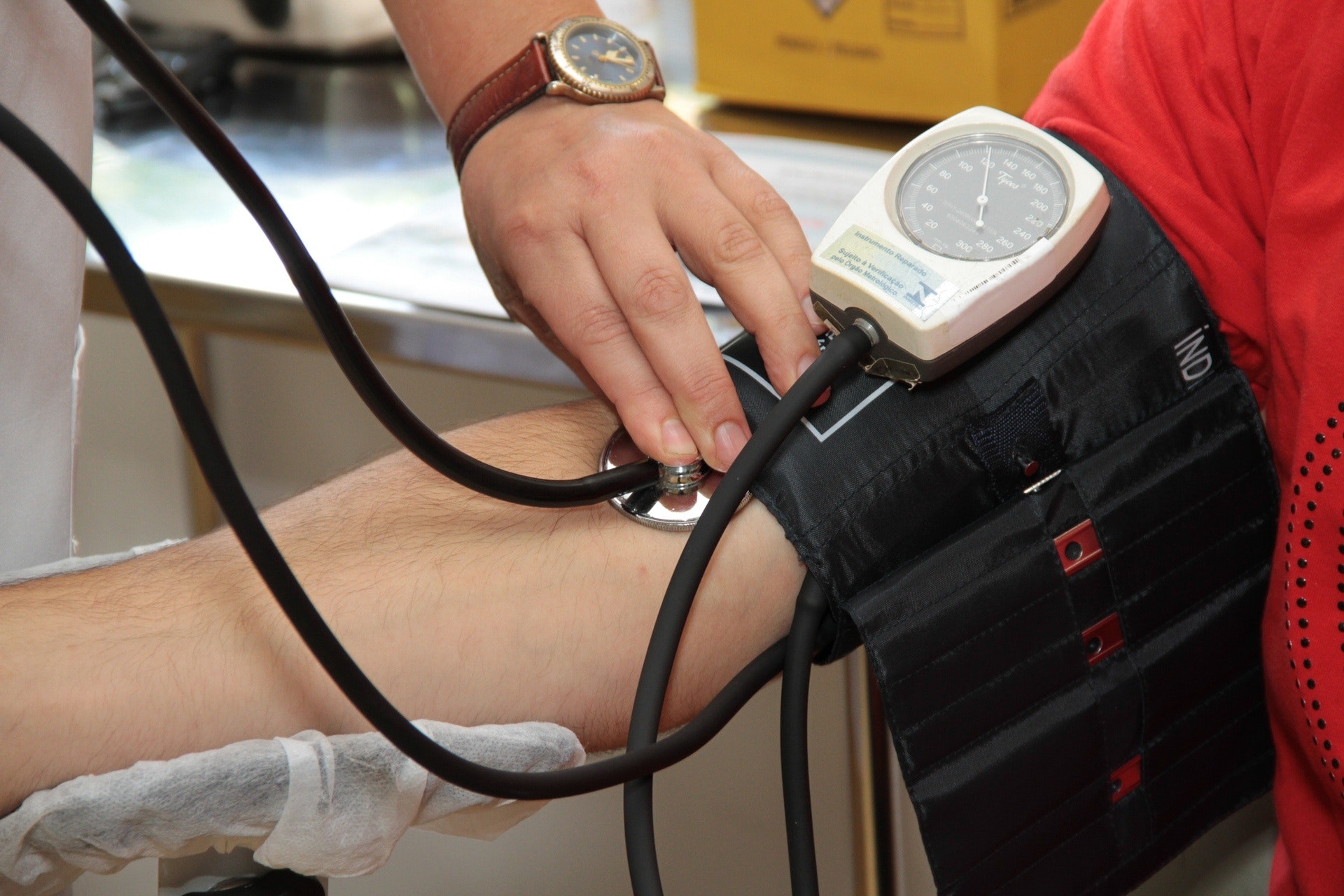Causes & Warning Signs of a Myocardial Infarction (Heart Attack)
A heart attack is the result of a lack of oxygen flow to the heart, whereby the sudden restriction causes cardiac ischemia. The tissues that make up the heart begin to die, which causes myocardial infarction, more commonly known as a heart attack. Myocardial infarction, in it’s latin root, means “death of heart muscle”.
Myocardial Infarction: How Does it Happen?
The hearts requirement of a consistent flow of steady oxygen is one of the most critical biology processes that take place in the body. The heart’s three coronary arteries supply necessary functioning to both the body and the lungs. Two of the heart’s arteries are involved in a heart attack, or as we’ll call it, a myocardial infarction. When these arteries are blocked, the heart is no longer able to function without oxygen, and the heart then experiences myocardial infarction as the tissue begins to die.
A Myocardial Infarction Isn’t Like The Movies
While in movies, one who experiences a heart attack is suddenly jolted by an unexpected and sharp pain in their chest. The victim grabs their heart dramatically and falls to the ground while those around him or her gather and someone shouts, “Call an ambulance!” This is not typically the case. Heart attacks often occur over several hours. In many cases the victim of a myocardial infarction or a heart attack, doesn’t even feel the symptoms common to a heart attack.
What are the symptoms of a heart attack, if indeed they are experienced by the victim?
Symptoms of Myocardial Infarction
The symptoms of a heart attack include:
- Shortness of breath
- Nausea
- Dizziness
- Blurry vision
- Heart pain or tightness
In many cases, mild heart attacks are mistaken for heartburn, which if left ignored can exaggerate into a more extreme condition when left untreated. The pain experienced is hardly constant. Many times the victim of a heart attack or a myocardial infarction experience intermittent discomfort or tightness in their chest or heart that seemingly goes away after only a few minutes, then only to come back a while later.
Symptoms of Myocardial Infarction
Women and men experience the symptoms or signs of a heart attack in different ways. Often times, women feel unmistakable heart-gripping chest pain. These are the classic heart attack symptoms, similar to those cinematic myocardial infarctions that we hold in high reference when we think of a heart attack.
Women may also feel shortness of breath or a numbness or tingle in their jaw, arm or back. Men differ in that their symptoms are often less constant.
What are The Warning Signs of a Heart Attack?
The early warning sign is also the most commonly illustrated sign of a heart attack typically displayed by the movies. Think of the business man crossing the street, who grabs his heart suddenly and falls mid-crosswalk into a bustling crowd. Or the father who’s wife notices her husbands uncharacteristic withdrawal from dialogue during or right after a stressful experience. This heart clutching chest pain that knocks many to the ground or at least renders them noncommittal to conversation is called angina.
Angina: What is It?
Angina is known as an early warning sign of a heart attack and it’s best known for the sudden, jolting chest pain that recedes within a short period of time, usually within just a few minutes. The heart doesn’t suffer damage that is permanently affecting the victim after an experience of angina, however angina does restrict the heart of blood flow. The arteries that we talked about early aren’t fully blocked, so the blood is still able to push itself through, however it is much more difficult than before the occurrence of angina.
Myocardial Infarction Vs. Angina
A myocardial infarction are similar to angina, which would be considered a slight or very mild heart attack, because restricts the blood flow to the heart. However, myocardial infarctions don’t recede as quickly and the muscle tissues that make up the heart begin to die, causing permanent damage to the heart.
A quarter of all myocardial infarctions are not preceded by any recognizable warning signs or symptoms. This is what many physicians have coined, “silent ischemia”. This is when the heart is intermittently blocked from receiving pertinent blood flow. Over time, the tissue of the heart begins to die. This may occur even without pain, so the victim of this silent ischemia does not even know what is happening.
Myocardial Infarction Testing
The only way to test for silent ischemia is by the use of an electrocardiogram, or ECG testing. The most common ailment that precedes ischemia is diabetes.
As silent ischemia is often misdiagnosed by the victim as irritating, yet harmless, heartburn or reflux disease, it’s critical that the symptoms are taken seriously. Especially if the victim of ischemia is diabetic, the sooner an ECG test can be administered and the results confirmed, the sooner the victim can be treated in order to reduce permanent damage done to the heart.
The Unfortunate Truth about Myocardial Infarction
Unfortunately, 25% of all victims of myocardial infarction die before they even reach the paramedics. When this is not the case, an even greater number of people have to then deal with critical and life threatening conditions as a result of permanent damage done to the heart. These complications occur while in the hospital, which is why victims of myocardial infarctions are watched so carefully in the hours and days following the occurrence. Complications include:
- Stroke
- Blood clotting
- Cardiac arrest
- Aneurysm
- Weakened heart chamber
Recovering from the Myocardial Infarction
If the heart attack is survived by the victim, they can recover quickly and can often times lead normal lives following the myocardial infarction. Heart attacks weaken the heart considerably after every occurrence. The tissue begins to die, leaving the heart having tot work harder to perform the same functions. Its similar to having to carry a stack of books with both arms across a room and then carrying the same stack of books with one arm across the same room.
While it can be done, it can be tiring, and cause the heart undue pressure that often entails healthy lifestyle changes are necessary for the victim of a myocardial infarction in order to strengthen their bodies and help the health of their heart as much as they can with dietary changes and consistent exercise.
Changing Lifestyles after a Myocardial Infarction
Recovery is a necessary yet often overlooked part of the myocardial discussion. However, changing ones lifestyle is much easier when it is understood what causes a heart attack.
A heart attack is most often caused by a hardening of the arteries. This is also called atherosclerosis. When the arteries are clogged, fatty bits of calcified plaque blocks the arteries from receiving or delivering imperative blood to and from the heart. A myocardial infarction happens because of an arterial blockage.
The History of Myocardial Infarction Treatments
A medical breakthrough in the late 1970’s helped medical researchers reach a groundbreaking conclusion that this blockage is not the entire cause of myocardial infarction. In fact, it is the blood clot that forms as a result of the fatty, calcified scab that forms, creating an impossible resistance that blood cannot pass through in the arteries. Researchers call this plaque rupture. Blood clots are formed from the rupture that occurs from arteries that are blocked wit the fatty, calcified plaque.
Another cause of heart attacks is the uncomfortable inflammation that flares up due to the buildup of fatty, calcified plaque.
Risk Factors of a Myocardial Infarction
It’s not yet 100% clear the entire process of what causes a myocardial infarction. By that we mean that it’s not entirely boolean. If you do this, then you will surely get a heart attack, is not how doctors view myocardial infarction. In fact, a myocardial infarction can occur to healthy victims as well as not so healthy victims. There are major risk factors that are associated or correlated with myocardial infarction. They include:
- High cholesterol
- High blood pressure
- Smoking
- Obesity
- Lack of exercise
- Stress
- Diabetes
- A life changing or sudden event
- Sudden exertion
- Sudden realized risk
- Sudden excitement
Having a history of different kinds of heart disease can also lend oneself to myocardial infarction. In short, myocardial infarction can’t be completely avoided, but steps can be taken to mitigate the chances of experiencing the sudden blockage of the arteries, thus causing a rupture of the blockage and subsequent blood clotting.
Myocardial Infarction: The Science of How It Happens
There are available procedures for those who have a blockage of the arteries, or a buildup of unwanted and frankly, dangerous fatty, calcified plaque in the arteries. There is a procedure called coronary angiogram and coronary balloon angioplasty. There are also clot dissolving drugs that can help to dissolve the buildup of fatty, calcified plaque from the arteries, thus liberating the blood flow in the hearts pivotal arteries. These treatments are typically administered early on in the symptoms of a heart attack in order to restore blood flow before the hearts muscle tissue begins to die.
We often hear that high blood pressure lends itself to a heart attack or a myocardial infarction but that simply isn’t always the case. In fact, it is so often not the case that we don’t use high blood pressure as a measurement for the likelihood that one will or will not experience a myocardial infarction in their lives.
Myocardial Infarction: No Symptoms
Remember: More than 25% of all heart attacks occur without symptoms that are recognizable. In fact, extreme fatigue may often mean a heart attack. While this is not the typical heart attack displayed I the blockbuster hits we watch Denzel resolve on the big screen, it is one of the most common ways that a myocardial infarction occurs. Myocardial infractions may start out as the following:
- Anxiety
- Indigestion
- Fatigue
- Stress
- Heartburn
Seek medical attention immediately if you’re feeling these symptoms. While it may seem ordinary, it is better to know if your heart is healthy, than mistaking some of these common signs for the reasons lending to your mild chest pain. Chest pain is serious.
Are You Experiencing the Signs of Myocardial Infarction?
If you’re experiencing chest pain or uncharacteristic symptoms as described above and in the preceding paragraphs, seek medical attention immediately. The experienced physicians at South Florida CardioVascular Specialists can perform tests and treatments for myocardial infarction victims. Book your appointment today.





